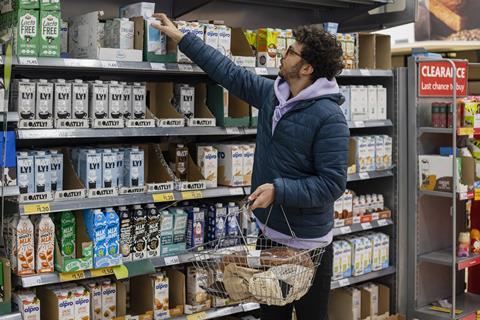
Food and drink companies have been nervous about sustainability collaborations. It used to be a case of ‘green means fines’, unless things were kept strictly pre-competitive. Companies wanting to collaborate on environmental issues feared joining forces to act in the public good in case they breached competition law and incurred fines. But this might be about to change.
I’m going to do something I wasn’t sure I’d ever do: praise the Competition & Markets Authority. As someone who believes we must move beyond consumerist thinking, beyond keeping prices artificially low and beyond providing unfettered choice, why compliment the CMA, the regulator charged with ‘protecting consumers and ensuring markets remain contested and contestable’?
Like the FSA, it does important work, but in my view, has had one hand behind its back. Both regulators are limited by narrow definitions of ‘protecting consumer interests’, so they can only regulate pieces of the puzzle, not the whole food system jigsaw. This means someone or something always loses out.
The good news is regulators are beginning to unleash those shackles. The FSA, while being careful not to overshoot its remit, is tentatively stepping beyond food safety and integrity into the arena of healthy and sustainable diets. The CMA, in turn, is taking steps to make it easier for companies to take environmental action.
Firstly, the regulator is getting involved in emerging marketplaces dealing with environmental issues, such as challenging motorway service stations that limit the range of electric car charging points. Secondly, it has launched an investigation into potentially misleading environmental claims made by food and drink and other fmcg companies, warning it will no longer tolerate greenwashing claims. And thirdly, the CMA is consulting on draft guidance that should help food companies more easily collaborate on environmental sustainability, without fear of breaking competition rules.
This draft guidance isn’t carte blanche to ignore competition laws, but it is a practical step to make it easier to collaborate, including for smaller food businesses. While discussions about competition law might not sound exciting, they are hugely important. Until now, businesses have been held back from taking urgent steps to address environmental impacts.
The new guidance includes a special provision for agreements designed to tackle climate change. The CMA says it will be more permissive and consider the totality of benefits to all UK ‘consumers’, not just to direct customers. This is a nod to the need to shift beyond narrowly protecting just those who consume a product, and instead think about wider impacts on us as citizens, on the planet and on future generations.
As we wrote back in 2011: “How the consumer interest should be interpreted is hotly debated and, by the broader definitions, includes sustainability and health in addition to choice, price and innovation.” We at the Food Ethics Council are particularly pleased about these recent shifts because we argued over a decade ago for changes to competition policy to enable more collaboration on sustainability.
Policy and regulatory change can be slow, but when it’s on the table, let’s support it. Do participate in the CMA consultation, hopefully in support of the draft guidance. There will soon be fewer excuses to go it alone. No more excuses to avoid collaboration.



















No comments yet